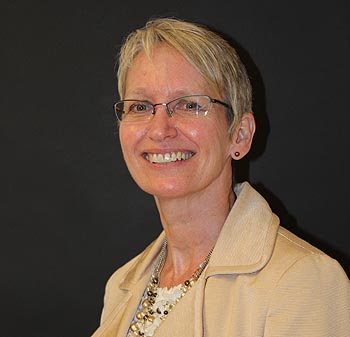
Dr. Melinda Dukes
Dr. Melinda Dukes, vice president for Academic Affairs at Tusculum College, is one of 20 senior academic administrators in higher education nationwide chosen by the Council of Independent Colleges and the American Academic Leadership Institute to participate in the 2012 Colloquium on Leadership for Chief Academic Officers: Classical and Contemporary Reading.
This select group, through an examination of classic and contemporary readings, will reflect on power, ethics, and responsibility and strengthen their leadership skills.
Individuals chosen for the program are chief academic officers in higher education who wish to prepare for changes and challenges in the decades ahead, understand complex and unprecedented situations and further develop strategic wisdom.
As a participant, Dr. Dukes will attend a seminar in Annapolis, Md., July 17–21. John Churchill, secretary of the Phi Beta Kappa Society, will lead the Colloquium, which will engage participants in cases drawn from classical and contemporary thought selected to help chief academic officers gain insights into issues commonly faced by today’s academic leaders. Examination, discussion and reflection will help foster the perspectives and skills academic officers need for leadership success.
“Higher education faces many uncertainties, but one thing is certain. Those who lead academic programs of colleges and universities must be able to make sense of complex and unprecedented situations and bring strategic wisdom into practical use,” says Richard Ekman, president of the Council of Independent Colleges. “Successful academic leadership will demand keen intellectual vision and decisive judgment, and the Colloquium will help leaders hone these skills.”
Dr. Dukes previously served as professor of psychology and associate vice president for academic affairs and has taught at Tusculum since 1989. She was one of the professors involved in the development and implementation of the focused calendar and commons curriculum that is part of the uniqueness of the Tusculum experience today.
She recently presented a paper on student persistence at the Southeastern Psychological Association annual conference and organized an undergraduate research thread for the Appalachian College Association’s Summit conference.
During her time at Tusculum she has had a tremendous impact on both academic programs and administrative operations. She has led efforts to align the experiential education units at the college, including Career Development, the Center for Civic Advancement and the institution’s Quality Enhancement Plan focused on problem-solving with reflective judgment.
She led the Strategic Planning Committee for Block Plan Enhancement and led the Information Services strategic visioning process. Over the past few years, Dr. Dukes has succeeded in increasing enrollment and institutional revenue at the college through the reformulation of its summer school programs.
She has led the development and implementation of new academic programs and was instrumental in the recent success of Tusculum College in achieving reaffirmation of accreditation from the Southern Association of Colleges and Schools Commission on Colleges. Dr. Dukes has also been a SACS-COC on-site peer evaluator.
She received the Tusculum College National Alumni Recognition Award in 2006 and the Teaching Excellence and Campus Leadership Award in 2001. She also received the Women of Achievement Award in 1983 from the University of Tennessee.
Dr. Dukes has a bachelor’s degree in education from Clemson University and earned her master’s degree and doctorate, both in psychology, from the University of Tennessee. In addition, she has completed the Higher Education Resource Services Certificate Class at the Bryn Mawr Summer Institute in 2008 as a Mellon Scholarship recipient for continuing education in higher education leadership and administration.
“Dr. Duke’s leadership is invaluable to our administrative team,” said Dr. Nancy B. Moody, president of Tusculum College. “This type of experience will help prepare her for the challenges facing academia and bolster her ability to lead our dedicated faculty and provide insight into the overall operation of the college.”
The Council of Independent Colleges is an association of more than 600 independent, liberal arts colleges and universities and higher education affiliates and organizations that work together to strengthen college and university leadership, sustain high-quality education and enhance private higher education’s contributions to society. To fulfill this mission, CIC provides its members with skills, tools and knowledge that address aspects of leadership, financial management and performance, academic quality and institutional visibility.
The American Academic Leadership Institute provides leadership identification and development programs across all sectors of public and private higher education. AALI creates and implements programs and assistance for academic leaders in various administrative positions enabling them to be successful in their roles and to advance the institutions they serve. In addition, AALI supports research and publications and consults with academic leaders and boards of trustees concerning traditional and emerging issues facing higher education and its governance. Headquartered in Washington, DC, AALI and its predecessor organizations have participated in the advancement of higher education for over 30 years.


